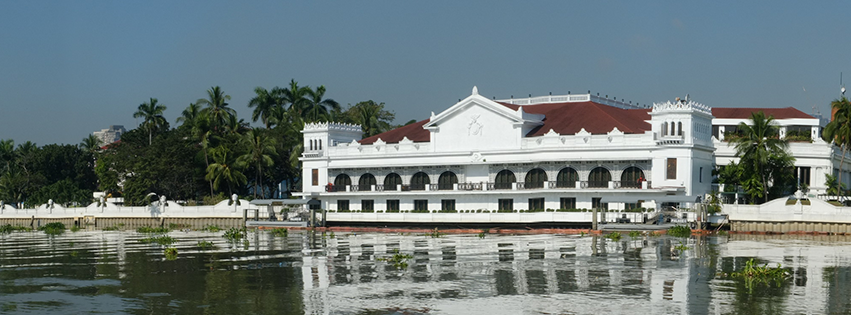
MANILA – Malacanang on Thursday defended the move of Pres. Benigno S. Aquino III to veto the bill providing a PHP2,000 across-the-board increase in the monthly pension of Social Security System (SSS) members, noting the government is ensuring the stability of the entire SSS system to benefit majority of its members for the next 27 years.
“Ang pangunahing layunin ng pamahalaan ay tiyakin ang katatagan ng pondo ng SSS para tugunan ang pangmatagalang pangangailangan ng lahat ng 31 milyong miyembro nito [The government ensures enough funds in the long run for SSS and all its 31 million members],” said Presidential Communications Operations Office (PCOO) Secretary Herminio Coloma Jr. in a Palace press briefing.
Citing Pres. Aquino, Coloma said the SSS pension increase will seriously comprise the stability of the entire SSS benefit system in favor of two million pensioners and their dependents.
He said the pension increase, with a corresponding adjustment of the minimum monthly pension, will result in substantial negative income for the SSS.
The Palace official added that SSS will be constrained to use its Investment Reserve Fund (IRF) to meet a deficit in total payment for pensioners of PHP16 billion to PHP26 billion annually.
With 2.1 million pensioners, the proposed pension increase of PHP2,000 per retiree will result in a total payout of PHP56 billion annually, much higher compared to SSS’s annual investment income of PHP30 billion to PHP40 billion.
“Yung sobrang laki nung epekto nito na hinihigitan pa ‘yung kontribusyon at ‘yung investment income at dahil dito ay iikli ang buhay ng pondo, na sa halip hanggang 2042 ay hanggang 2029 lamang [It would have a huge effect… the funds would last only until 2029 instead of 2042],” explained Coloma.
“Hindi magiging responsable ang pamahalaan kung hahayaang mapariwara o masira ang katatagan ng pondo. Ito na ang magiging sukdulan ng kawalan ng malasakit sa ating mga Boss, ang mamamayang Pilipino, kung hahayaan nating mangyari ito [It would be irresponsible on the part of government if we let SSS lose funds],” he added.
Nonetheless, Coloma assured that the SSS management is studying other benefits it could provide to its members while ensuring the stability of its fund.
One comment on “Palace defends President Aquino’s SSS pension hike bill veto”
Paasa (Raising false hopes).
This in a nutshell sums up and aptly describes the effects of President Aquino’s recent veto of the bill proposing a P2,000 across-the-board increase for SSS pensioners.
The presidential veto has brought to the fore the serious lapse in the liaison and advisory works of both the Presidential Legislative Liaison Office (PLLO) and the Legislative-Executive Development Advisory Council (LEDAC). For how could such a bill have passed both houses of Congress without the usual Completed Staff Work (CSW) – or whatever term they may wish to call it — that would fairly apprise the President and the members of the legislature as well about the possible impacts – social, political, economic, fiscal, etc. – of key legislative measures under consideration by Congress?
With such a CSW, the President is given a blow-by-blow account of the actions in Congress and is promptly advised by his subordinates relative to the appropriate decision or course of action to take on certain pending bills and avert, where proper, their being elevated to the portals of Malacañang for final decision by using his innate power of suasion over his allies in Congress. The timely information given the Chief Executive on crucial bills would spare him from being put “on the spot,” so to speak, and effectively shun a situation where members of Congress advocating a bill would earn “pogi points” and gain undeserved political mileage at the expense of an unwary President. That, too, would save Congress hundreds of deliberation hours and, of course, millions of people’s money!
We thought that the presidential staff learned their lessons well from the 15th Congress (2010-2013) during which period the President vetoed nearly 80 bills submitted to him for signature. Such number of rejections speaks of the kind of coordination and linkage which the executive and the legislature had then. Proposed measures which are unlikely or have a very remote chance of being approved by the President owing to certain foreseeable considerations should, following an extensive research and CSW, be “nipped in the bud” and “dumped outright” at the legislative mill.
While the SSS bill may be the first bill ever vetoed by the President among those passed by the current 16th Congress (2013-2016), still the recurrence of the old and unpalatable practice by Congress of passing the buck and eventually shifting the burden to the Office of the President at crunch time as well as the oft-laid-back approach and slip-shod treatment by the President’s men of legislative proposals which is akin to a “let’s-just-cross-the-bridge-when-we-get-there” attitude is something to be abhorred and despised.
That the poor old SSS pensioners were made to believe that the bill would merit nothing less than the approval of their President, it having been given the imprimatur by hundreds of their representatives in Congress, made its rejection all the more painful and difficult to accept by those would-be beneficiaries. The two branches of government should by now have learned their lessons from this sad chapter and should forthwith become more prudent and circumspect in ensuring that what is finally delivered to their constituents are “true and concrete services” and not “paasa lang” or mere “hollow promises.”
ATTY. ALVIN T. CLARIDADES
PUP College of Law Faculty
Manila
Comments are closed.